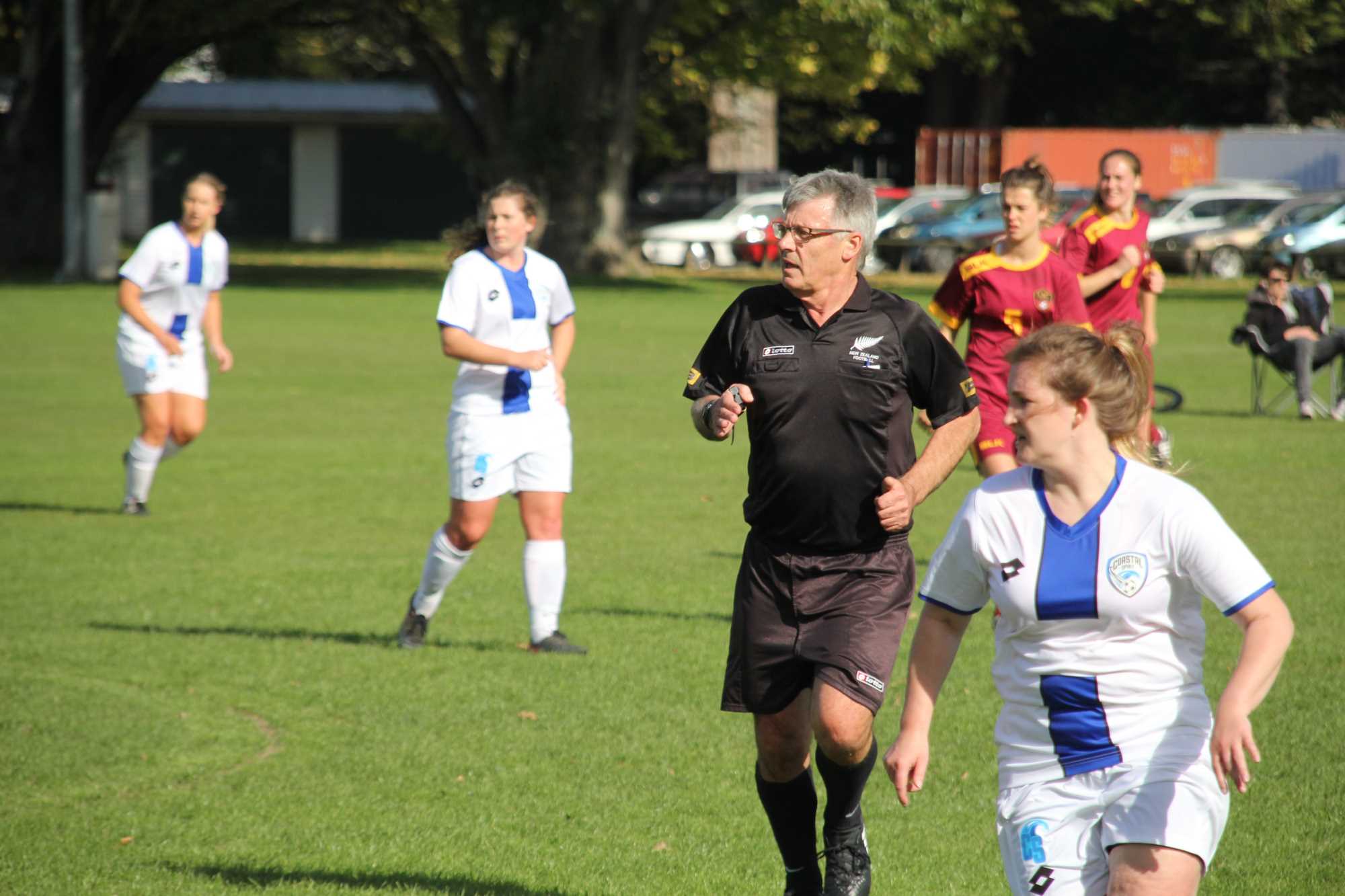
Prescott Shares Refereeing Perspective

Brian Prescott has been refereeing for nearly a decade. He talks about his journey so far, the opportunities, refereeing beyond the football field and the women's game.
When and how did you first get into Refereeing?
I started about 9 years ago, when our son’s team had to provide a referee. I did a Level 1 Referee course, where Wayne Stapley (Referee Development Officer and a master psychologist!) challenged me that you never know if you are any good as a referee until you do adult games. A Level 2 and Level 3 course later and I managed to referee 60 games last year.
What advice do you give new referees coming into the game?
Start now! The opportunity to progress through to national competitions and FIFA level is fantastic for young referees, probably more attainable than as a player. Set and revise your goals, e.g. I aim to be a better referee every 10 games I referee than I was at the start of those 10 games. Refereeing is flexible and can be fitted in around other commitments.
Does refereeing provide transferable skills for your work or personal life?
One of the big skills in life is getting people to do what you want them to do, not the other way around. Refereeing helps enhance that skill.
How social can refereeing be off the field?
Being part of a team of three referees always makes it a chance to catch up with people. Frequently we are invited for a drink at the host clubrooms, many referees go to Cranford Ale House on Saturdays to discuss what went well and what didn’t in your game, meals out, barbecues, even runs around Hagley Park end up with a social drink.
What are you up to in your spare time?
I have a wife, and two children at University of Canterbury who still enjoy my company! I am a loyal sky sport subscriber and a keen socialiser. My next aim is to become a good golfer- how hard can hitting a stationary ball be?
What makes refereeing so enjoyable for you?
Refereeing is all about preparation and execution. It is always satisfying when a game turns out to be skillful, fast and physical and without incident or injury. Preparation involves knowledge of the laws of the game, fitness and being ready to deal with the unexpected.
You have been involved in supporting the women’s game for a few years now, what are some challenges that make finding referees to cover these games difficult and get more females involved in refereeing?
I am impressed with how well Canterbury women players are represented in New Zealand teams and they also overachieve in obtaining university scholarships for football and professional contracts. I hope that by refereeing women games at several levels I can do a little to make the women’s game stronger. I have a few ideas concerning growth in player numbers and fundraising for the women’s game but no achievements yet. Male referees are almost always impressed by the ability and attitude of the women players. They need to be open minded.
Our female referees are very capable, they juggle refereeing with education, career and family commitments. Maybe prospective female referees need to realise that refereeing is flexible and doesn’t need to dominate their lives and can be done in conjunction with other interests. Football is no longer just a Saturday activity and takes place in some form over most of the year. They can vary their level of involvement.
To #getin to refereeing, contact Wayne Stapley for more information, or check out the courses page for the next referee course dates.
